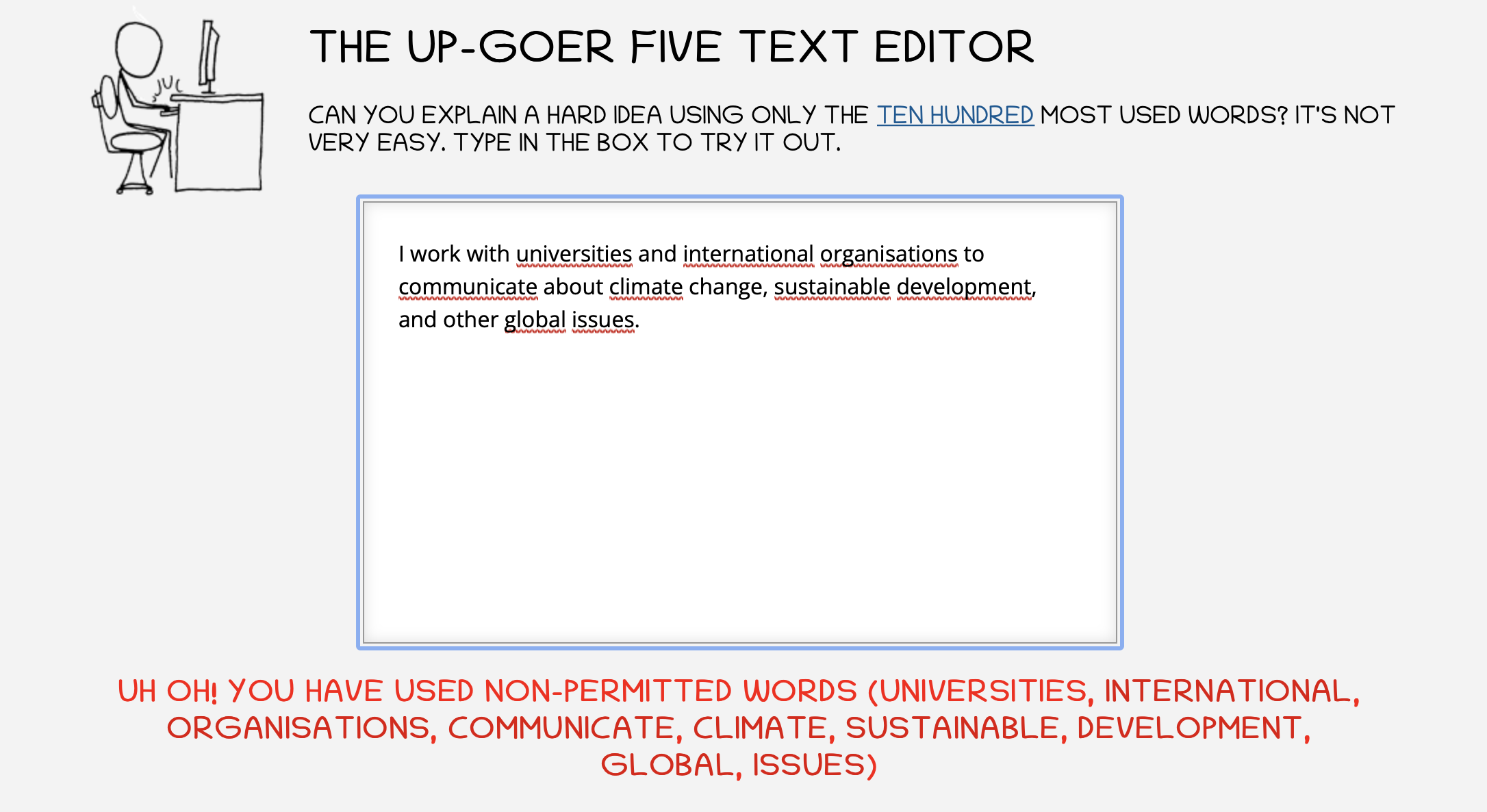Can you keep it simple with your science communication?
One of the things Tali Hoffman and I focus on in our science communication training course is communicating about science in simple terms.
This can be challenging for researchers.
Scientists (and academics generally) use field-specific terms and language that can be foreign to non-specialists. Good science communicators are able to discuss their work without relying on heavy jargon, making it accessible to those outside of the field.
A fun exercise for trying to keep it simple
Communicating about science in simple terms can be easier said than done. Indeed, communicating in simple terms about anything where one has specialist knowledge is challenging.
A fun way to test your ability to communicate simply is with the Up-Goer Five Text Editor. This online tool tests to see if you can explain an idea using just the 1,000 most used words in the English language. The tool highlights “non-permitted words,” which you can then update as you try to break down your writing into simpler terms.
As you can see, I need a bit of practice myself!
Screenshot of the Up-Goer Five review of my elevator pitch.
Now, a caveat: Up-Goer Five is a fun exercise. It makes you think about how to express yourself using a restricted number of simple words. This is good practice for creative thinking. However, audiences are likely to have larger vocabularies than just 1,000 words. I don’t think scientists need to aim at this level when describing their work. (For an in-depth take on this, read Stephen B. Heard’s article, “Does anyone else find “Up Goer Five” a bit condescending?”).
Fun is really the focus here! And I think science communication can be fun.
If you’d had fun with the Up-Goer Five Text Editor, or find it has a serious benefit to you and your science communication, let me know in the comments.
Are you a scientist looking to up your science communication skills? Check out the science communication course I run with Dr Tali Hoffman.

